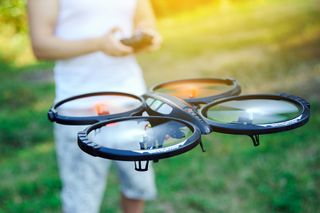Government trials drones to sniff out chemical hazards
The government will invest in new high-tech gadgets to assess hazardous scenes

The government has invested over 1.6 million in drones and robots to be used to assess potentially hazardous scenes.
Following a collaboration between the Ministry of Defence and the Home Office, four SMEs have been awarded funding.
The first company is Autonomous Devices Limited in Milton Keynes which produces a gadget called Snake Eyes. It uses drone-based technology, is small enough to be posted through a letterbox, and can relay 3D images as well as detect chemical agents.
The second company is BMT Defence Services in Bath, which has designed an unmanned aerial vehicle with gas-sensing technology.
The third company is Nuneaton-based Horiba Mira which is developing a robot with its own neural networks to be deployed on decontamination missions.
Lastly, Loughborough University is creating a pocket sized-drone which searches for chemicals.
The SME's took part in a competition held by the Defence Science and Technology Laboratory (Dstl) called Minerva. They were chosen out of 18 companies that made it through the first round.
Get the ITPro. daily newsletter
Receive our latest news, industry updates, featured resources and more. Sign up today to receive our FREE report on AI cyber crime & security - newly updated for 2024.
Defence secretary Michael Fallon said: "With intensifying threats abroad and the risk of accidents at home, we need the very latest technology to respond to any incident. Competitions like this with our 800 million Innovation Fund will ensure Britain has the latest in cutting-edge technology needed help keep us safe."
The UK's first police drone unit was launched in Devon Cornwall and Dorset in July as reported by the BBC. The drones are to be used to track suspects in firearm incidents as well in counter-terrorism operations. The drones have zoom cameras and thermal imaging and have police markings on them.
Drones have caused problems, including an incident at Gatwick Airport in July when one flew too low forcing the authorities to close the runway and divert flights.
Image source: Bigstock
Zach Marzouk is a former ITPro, CloudPro, and ChannelPro staff writer, covering topics like security, privacy, worker rights, and startups, primarily in the Asia Pacific and the US regions. Zach joined ITPro in 2017 where he was introduced to the world of B2B technology as a junior staff writer, before he returned to Argentina in 2018, working in communications and as a copywriter. In 2021, he made his way back to ITPro as a staff writer during the pandemic, before joining the world of freelance in 2022.





